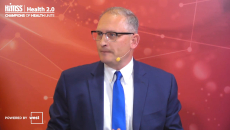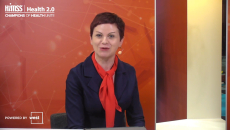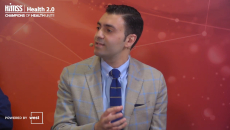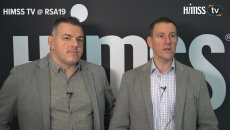cybersecurity
Deep Dive: The second video of this four-part series on healthcare cybersecurity looks at the motivations behind healthcare cyberattacks and the specific prizes hackers are targeting.
Deep Dive: In Part 1 of a four-part series on healthcare security, cybersecurity veterans discuss the major risks facing today's healthcare organizations, and why protecting sensitive data and systems is a vital step in providing care.
Julio Vivero, business partner at GMV, says the healthcare industry must identify and address cybersecurity issues it will be facing in the future, but a one-size-fits-all approach is not the solution.
Ronald Petru, CMIO at Radboudumc in the Netherlands, says that organizations need to inform their workforce about cybersecurity risks as well as ensure that a proportional investment is made into security to ensure risks are mitigated.
Watch the stream of the event's first day in its entirety, with discussions on hot topics including blockchain, cybersecurity and patient advocacy.
It’s necessary to get clinicians interested in cybersecurity because of the potential risks to outcomes, says Saif Abed, MD, founding partner of AbedGraham Healthcare Strategies.
Richard Staynings, an independent executive security leader, says the concept of keeping patients safe is more than just preventing infections and falls but should also include protecting their data from security breaches.
Healthcare organizations need to assess and monitor business relationships because of the dangers of cyber threats, says BitSight Vice President Jacob Olcott.
The security vendor is working to protect organizations from such threats as the Scarlet Widow scam and the display name deception tactic in a world where geopolitical boundaries do not apply to the internet.
Akamai's Patrick Sullivan and Tony Lauro say healthcare is a fertile target for cybersecurity attacks, making zero trust networks appealing as a simplified solution to protect data.









